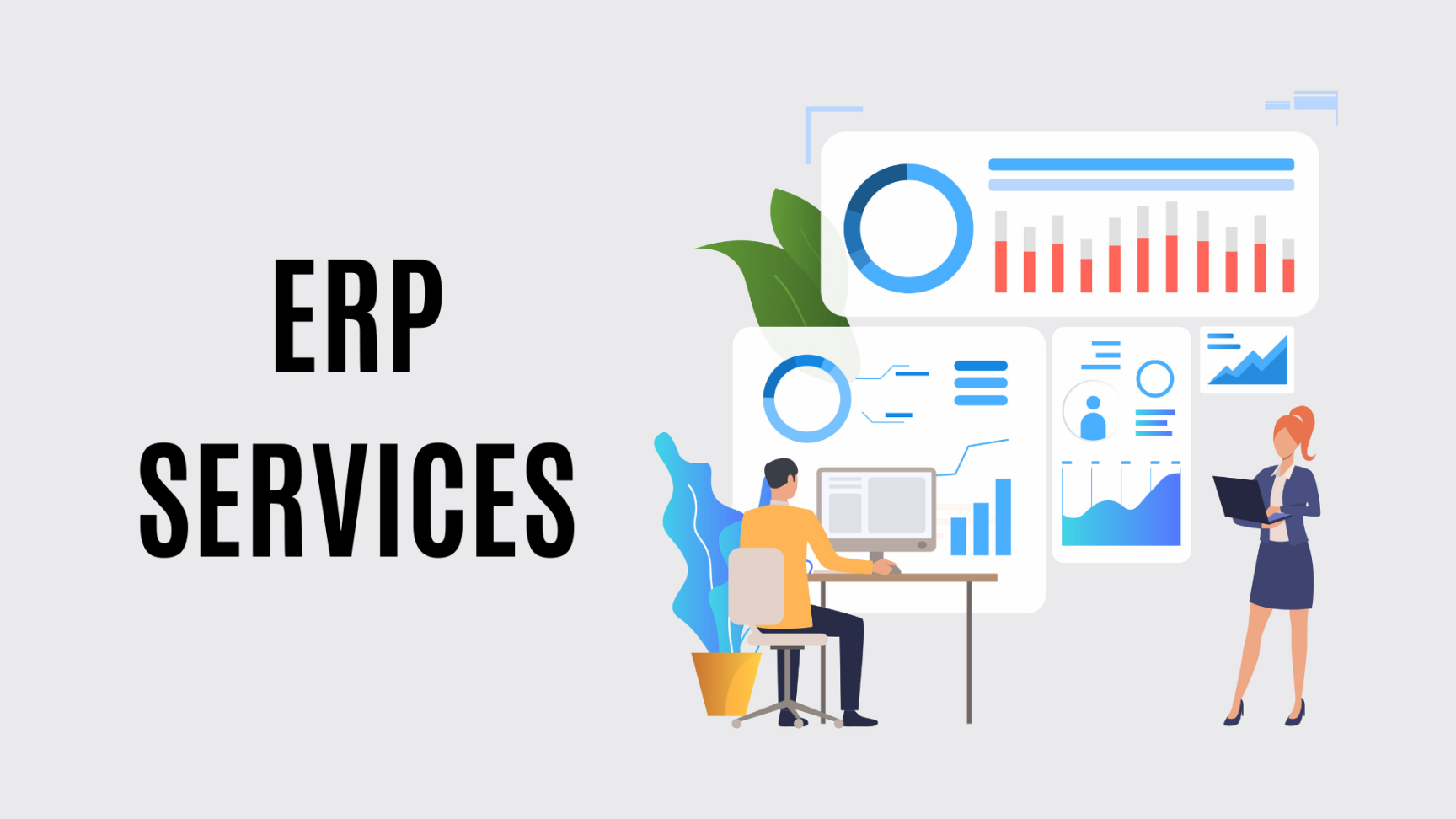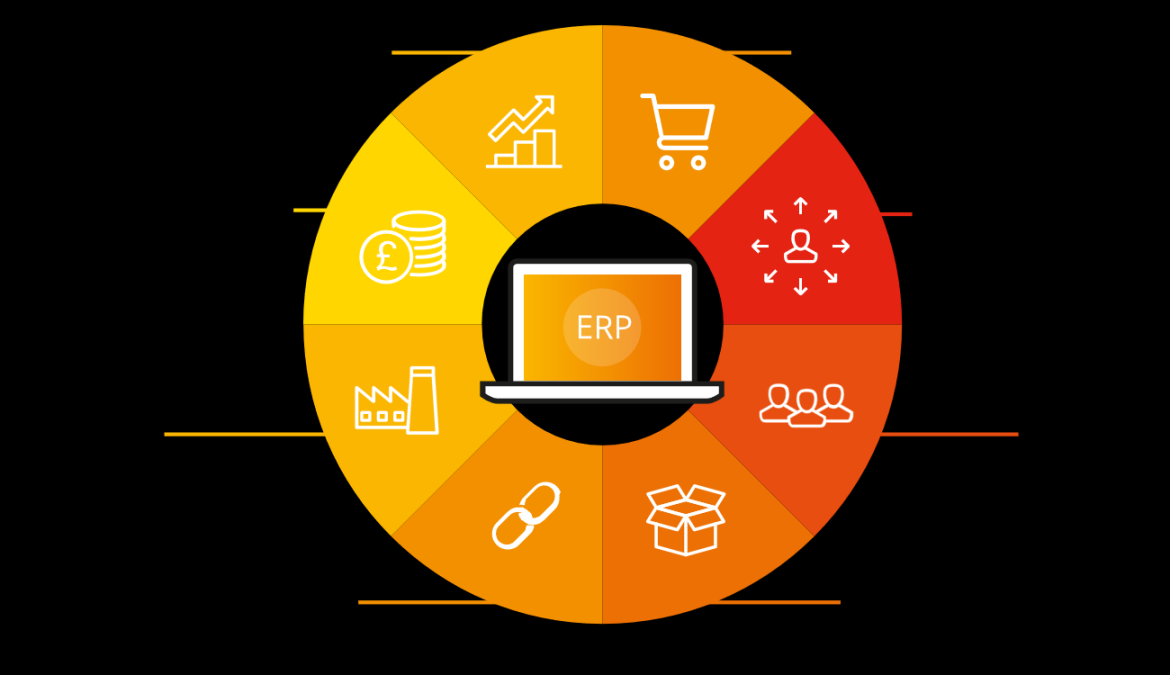In today’s competitive business landscape, streamlining operations and maximizing efficiency are crucial for success. This is where Enterprise Resource Planning (ERP) services come into play. ERP services encompass the implementation, customization, and ongoing support of ERP software, a powerful tool that integrates and centralizes various aspects of your organization’s core business activities.
Understanding ERP Systems

An ERP system acts as a central nervous system for your company, connecting departments like finance, human resources, supply chain management, manufacturing, and sales. This integrated platform eliminates the need for siloed data and disparate software solutions, fostering a collaborative environment with a single source of truth.
ERP systems typically offer a comprehensive suite of features, including:

Financial Management: Streamline processes like accounts payable/receivable, general ledger, and budgeting.
- Inventory Management: Gain real-time visibility into stock levels, optimize ordering, and reduce stockouts.
- Supply Chain Management: Manage procurement, warehousing, and logistics for a more efficient flow of goods.
- Customer Relationship Management (CRM): Enhance customer interactions, track sales opportunities, and improve customer service.
- Human Capital Management (HCM): Automate HR tasks like payroll, recruitment, and performance management.
The Benefits of ERP Services
Implementing ERP services offers a multitude of advantages for businesses of all sizes. Here’s a closer look at some key benefits:
Increased Efficiency and Productivity: Streamlined workflows and centralized data lead to better collaboration and reduced time spent on manual tasks.
- Improved Decision-Making: Real-time data access empowers informed decision-making across all departments.
- Enhanced Visibility and Control: Gain a holistic view of your operations, identify bottlenecks, and make data-driven adjustments.
- Reduced Costs: ERP systems can help optimize inventory levels, minimize waste, and streamline processes, leading to significant cost savings.
- Improved Customer Satisfaction: Efficient order fulfillment, better inventory management, and enhanced communication contribute to a more positive customer experience.
- Scalability and Growth: ERP systems can adapt and grow with your business, providing the necessary infrastructure to support future expansion.
ERP Services: Implementation and Beyond
While the benefits of ERP are undeniable, successful implementation requires careful planning and expert guidance. ERP service providers offer a range of services to ensure a smooth transition and maximize the value of your ERP system.
These services include:
Needs Assessment and System Selection: ERP consultants will assist you in identifying your specific business needs and selecting the most suitable ERP software solution.
- Customization and Configuration: ERP services can tailor the system to your unique workflows and integrate it with existing systems.
- Data Migration and System Integration: Seamlessly migrate data from legacy systems and integrate your ERP with other applications.
- Change Management and User Training: Prepare your employees for the transition with comprehensive training and support.
- Ongoing Support and Maintenance: Benefit from ongoing maintenance, technical support, and system upgrades to ensure optimal performance.
Choosing the Right ERP Service Provider
Selecting the right ERP service provider is crucial for a successful implementation. Here are some key factors to consider:
Experience and Expertise: Look for a provider with a proven track record in your industry and experience with your chosen ERP software.
- Implementation Methodology: Choose a provider with a well-defined implementation methodology that ensures a smooth transition.
- Training and Support: Prioritize providers offering comprehensive training programs and ongoing support to maximize user adoption.
- Scalability and Flexibility: Ensure the provider can adapt and grow with your business needs.
- Cost and Value: Seek a provider that offers a competitive price point while delivering exceptional value and a strong return on investment (ROI).
The Future of ERP Services
The world of ERP is constantly evolving, with new technologies like artificial intelligence, machine learning, and cloud computing shaping the future of the industry.
ERP services will continue to play a vital role in helping businesses navigate this ever-changing landscape. By leveraging these advancements, ERP systems will offer even greater capabilities for:
Predictive Analytics: Gain insights into future trends and proactively address potential issues.
- Enhanced Automation: Automate routine tasks and free up employees to focus on higher-value activities.
- Improved User Experience: More user-friendly interfaces and intuitive functionalities will enhance user adoption.
Investing in ERP services is a strategic decision that can significantly enhance your business operations, empower data-driven decision-making, and propel your organization towards long-term success.